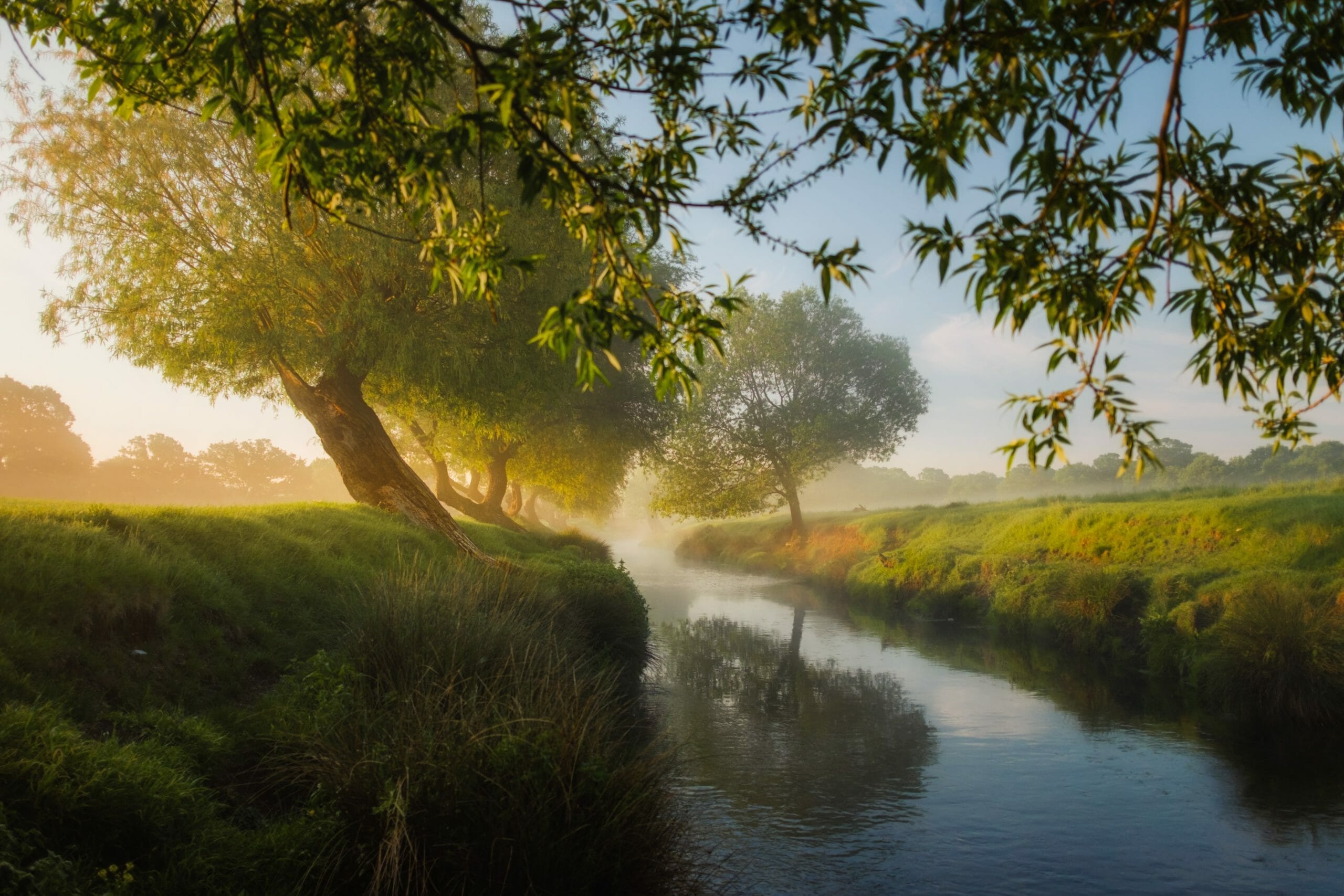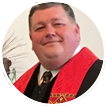
Photo by Simon Wilkes on Unsplash
Beyond the funeral, life with the 23rd Psalm

Rev. Jerrod H. Hugenot
February 20, 2020
It takes around an hour to talk with a family about a funeral. You sit down and talk a bit about the details, sometimes sitting in the church office, sometimes at a person’s home, even one time at a restaurant over lunch and a piece of pie. You jot notes down, you ask questions, and at some point, you ask, “Are there any Scripture passages that come to mind?”
At this point, some folks bring out Bibles and open to a specific page. Some give sort of a phrase or two from a vague-at-the-moment memory, and say, “Do you know which verse I mean?” Others say, “It’s whatever you think fits the occasion.”
Invariably, however, the 23rd Psalm comes up. For many folks, this is the most familiar part of going to a funeral. At some point, someone reads, “The Lord is my shepherd; I shall not want….” Like in the King James Version, the words linger in the room long after they are spoken.
I would be remiss, though, if I suggested the 23rd Psalm only for a funeral service. Scholar of the Psalms J. Clinton McCann suggests that “this psalm be read and heard as a psalm about living,” placing the wisdom of the psalm squarely in the day-to-day world that we inhabit rather than the promises of a world yet to come.[i] The 23rd Psalm speaks of God providing abundantly the things we need most: food, drink, and a sense of being safe and secure.[ii]
Scholar of the Psalms J. Clinton McCann suggests that the 23rd Psalm “be read and heard as a psalm about living,” placing the wisdom of the psalm squarely in the day-to-day world that we inhabit rather than the promises of a world yet to come.
There is a relationship dynamic presumed by this psalm: God provides and the people trust. The vision of the psalm is not that “some will be given care and others will not.” As the shepherd, God is imagined as one who provides for the basic needs of the flock. The flock is called to be content that they are indeed in God’s capable hands.
The psalmist uses the metaphorical language of God as shepherd and the faithful as his flock. The analogy is so tender, but it is also tinged with the awareness that in that day, the shepherd/sheep analogy was used often to describe a king and his subjects—and not all shepherds treated their people in a fair and just manner.
If you want a glimpse of the Bible’s view of those in power (especially when journeying through this contentious 2020 election season), read the exchange between the prophet Samuel and the Israelites when the people say that rather than a judge or prophet, they want a king to lead them, similar to other nations around them.[iii]
Wise old Samuel clearly describes the trouble that kings cause, yet the people keep saying, almost as if small children to a parent, “No, we want to be like the other nations.” If you keep reading, you will notice that Saul, David, Solomon, and the many others each fulfill Samuel’s warning about kings in their own unique ways.
In the wisdom of the Hebrew Scriptures, the Lord is the only “shepherd” or ruler that fulfills this promise of care and provision. This ruler will not exploit, but tend like a shepherd to his flock. In the language of the New Testament, Jesus is referred to as “the good shepherd” and the Lamb who is also Shepherd, images of great tenderness as well as great care. Indeed, who among us does not yearn for a day when there will be an end to suffering, crying, and pain? The biblical text offers an alternative view of the world, one that brings about an abundance of hope for those who read, ponder, and then live these words.
Thus, the challenge of the 23rd Psalm is to grasp that radical trust in God alone. This takes a remarkable and deep commitment to God to do so, to quiet down our own interior desires and anxieties, to settle down our restless natures and needs, to curb our appetites and our vices. The psalmist calls us to live a contrary life, closer to God than we ever thought in a casual reading of the 23rd Psalm. We settle for being less, not more. We embrace our dependence on something other than ourselves. We descend into a life where the basic needs are more important than our desire for something more.
When you read the 23rd Psalm, with its talk of God’s provision, how do you discern the wisdom of the psalm entering into your daily life? Is there a rhythm or path that helps you live each day? There is a great trust at work in the life of the psalmist, to speak of God’s care and provision so abundantly. Such a spiritual text can be a deeply contrary word for American Christians to hear, as our nation lives in relative privilege, compared to the rest of world. Our culture saturated by savvy marketing and some basic human desire for “more” makes this psalm easy to read but difficult to live.
As I think of the 23rd Psalm, I hear a bit of the monastic wisdom of western Christianity speaking to me. The emphasis of these religious movements center on living a simple life that is stable and focused. Even if one is not a monk, the spiritual intention behind such a movement makes excellent sense to anyone who has experienced the joys and crises of life. Contrary to what you might think, the monastic life is not an exercise in unattainable holiness, yet the simplicity of life that a monk vows to live models for the rest of us a little something of the well-lived life imagined in the book of Psalms. It is a life given to simplicity, stability, and ever-deepening devotion to God.
Take for example the sort of life recounted in the writings of the 20th-century monastic Thomas Merton. As a young man contemplating his future, Merton had some designs on being a writer, yet he also found himself growing more deeply attracted to Catholicism, particularly the life found among monks.
While talking with friends, Merton recounts that one friend was rather skeptical that Merton was making a good decision about entering a monastery. The friend suggested that Merton was looking for the assurance of “a bed and three meals a day for life.” Merton’s reply was simple: what he was looking for was “something else.”[iv]
One does not need enter the monastery to experience such a different life, yet the deeply rooted desire to trust God is what deepens the way that we experience life, whether in the spring or autumn of our years. The “still waters” to which God leads us are not reserved for when life’s journey completes. Indeed, we are invited to sit beside them all the days of our life.
The rich language of the psalms, with its offer of security to sit at God’s table, safe from harm, dwelling in God’s house—these are all given for the journey of life. As I encounter folks who are in the midst of the crossroads of life, dealing with the burdens and perplexities of existence, I would say, or better yet, pray that this psalm makes sense.
The Rev. Jerrod H. Hugenot is associate executive minister, American Baptist Churches of New York State.
The views expressed are those of the author and not necessarily those of American Baptist Home Mission Societies.
[i] New Interpreters Bible, Vol. IV, Nashville, TN: Abingdon, 1996, p. 767.
[ii] Ibid.
[iii] See 1 Samuel chapter 8.
[iv] A story recounted in Merton’s early journals, later published in as Run To the Mountain: The Story of a Vocation, The Journals of Thomas Merton: Volume One 1939-1941, ed. Patrick Hart, OCSO, San Francisco, CA: Harper Collins, 1995, 129.


